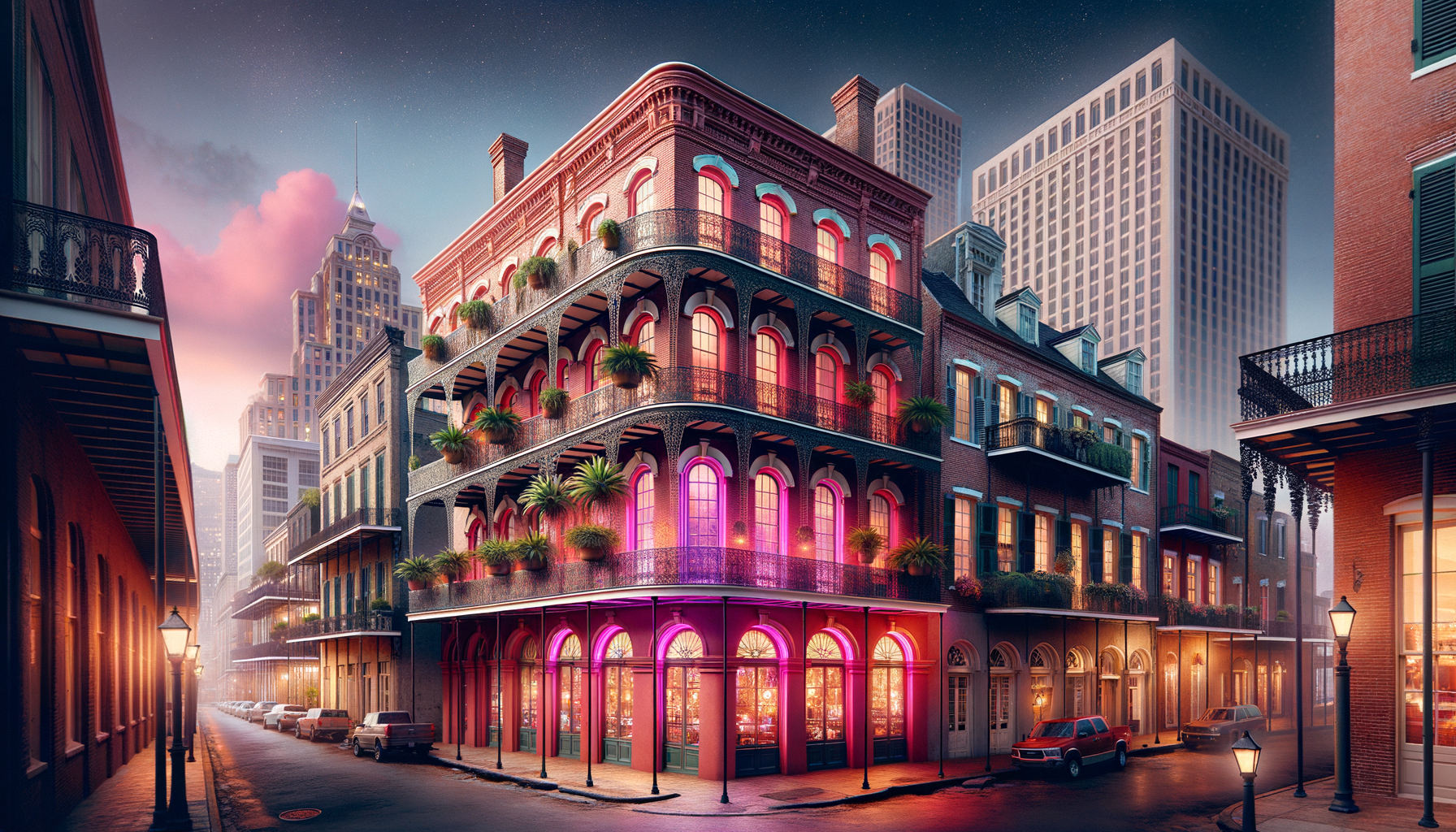 Welcome to the Big Easy: A Guide to Moving to New Orleans
Welcome to the Big Easy: A Guide to Moving to New Orleans
If you’re considering moving to New Orleans in 2023, you’re in for a treat. Known as the Big Easy, this vibrant city is a melting pot of cultures, flavors, and sounds that is sure to captivate your senses.
From the historic neighborhoods and iconic architecture to the world-famous cuisine and music scene, New Orleans has something for everyone. In this moving to New Orleans guide, we’ll explore everything you need to know to make the most of your move to the Crescent City (especially if you’re moving to New Orleans alone!)
Understanding the Unique Culture of New Orleans
The city of New Orleans has a rich and vibrant culture that is unlike anywhere else in the world. From the city’s unique history to its music, food, and festivals, there is a lot to explore and discover in this fascinating city.
The Rich History of the Crescent City
New Orleans has a long and storied history that dates back to the 18th century when it was founded by French colonists. The city was named after the Duke of Orleans, who was then the Regent of France. The city quickly grew into a major port and trading center, with goods from all over the world passing through its docks.
However, the city has also faced many challenges over the years. From epidemics and natural disasters to wars and political turmoil, New Orleans has seen it all. Despite the challenges, however, New Orleans has always been a resilient and resilient city that has overcome adversity and come out stronger.
One of the most significant events in the city’s history was Hurricane Katrina, which devastated the city in 2005. The hurricane caused widespread damage and flooding, displacing hundreds of thousands of residents and causing billions of dollars in damages. However, the city has since rebuilt and revitalized itself, with many new businesses and attractions opening up in the years since the storm.
The Influence of French, Spanish, and African Cultures
One of the things that makes New Orleans so unique is its blend of French, Spanish, and African cultures. The city was originally founded by French colonists, but it was later ruled by the Spanish for several decades. The African influence in the city comes from the large number of slaves who were brought to the city during the colonial period.
This blend of cultures can be seen in many aspects of the city, from the architecture to the food and music. The historic French Quarter is a perfect example of this, with its ornate buildings and wrought-iron balconies. The food in New Orleans is also a reflection of this cultural mix, with dishes like gumbo, jambalaya, and beignets combining French, Spanish, and African flavors.
Music is another area where New Orleans’ cultural mix is evident. The city is known as the birthplace of jazz, and you can hear live music in many venues throughout the city. From traditional jazz to funk and blues, there is a wide variety of music to enjoy in New Orleans.
Celebrating Mardi Gras and Other Local Festivals
Another hallmark of New Orleans culture is its celebration of festivals and events, the most famous of which is undoubtedly Mardi Gras. This annual carnival is a time of revelry and celebration, with parades, parties, and parades filling the streets of the city for weeks. Mardi Gras is a time when people from all over the world come to New Orleans to experience the unique culture and celebrate with the locals.
But Mardi Gras is just one of many festivals that take place in New Orleans throughout the year. The Jazz Fest is another popular event, featuring live music from some of the biggest names in jazz and blues. The Voodoo Fest is another popular festival, featuring music, arts, and culture. Other events include the French Quarter Festival, the Essence Festival, and the Bayou Boogaloo.
Overall, New Orleans is a city with a unique and vibrant culture that is unlike anywhere else in the world. Whether you’re exploring the historic French Quarter, enjoying the food and music, or celebrating at one of the many festivals, there is always something new and exciting to discover in this fascinating city.
Finding the Perfect Neighborhood
Once you’ve gotten a feel for the unique culture of New Orleans, it’s time to start thinking about which neighborhood you want to call home whilst living in New Orleans.
The French Quarter: The Heart of New Orleans
For many people, the French Quarter is the quintessential New Orleans neighborhood. With its iconic architecture, winding streets, and lively vibe, the French Quarter is a great place to immerse yourself in the city’s culture. One thing to keep in mind, however, is that the French Quarter can be noisy and busy, so if you’re looking for peace and quiet, this may not be the neighborhood for you.
Garden District: Historic Charm and Beautiful Mansions
If you’re looking for a more residential neighborhood with a laid-back vibe, you may want to consider the Garden District. This historic neighborhood is home to many beautiful mansions and charming bungalows, as well as some great restaurants and cafes. The Garden District is also known for its beautiful gardens and parks, making it a great place to take a stroll.
Uptown: A Mix of Residential and Commercial Areas
Uptown is another popular neighborhood that offers a mix of residential and commercial areas. This neighborhood is known for its beautiful architecture, tree-lined streets, and bustling commercial district. Whether you’re looking for a great restaurant, a trendy boutique, or a quiet coffee shop, you’ll find it in Uptown.
Mid-City: Diverse and Centrally Located
Finally, if you’re looking for a centrally located neighborhood that offers a mix of cultures and lifestyles, Mid-City may be the perfect fit. This diverse neighborhood is home to people from all walks of life and features everything from historic bungalows to modern apartment buildings. Plus, with easy access to public transportation and major highways, Mid-City is a great jumping-off point for exploring the rest of the city.
Navigating the New Orleans Housing Market
Now that you have a sense of which neighborhoods you might be interested in, it’s time to start thinking about how to find the perfect home. Here are some things to keep in mind as you navigate the New Orleans housing market.
Renting vs. Buying: What’s Right for You?
One of the first decisions you’ll need to make is whether you want to rent or buy. There are pros and cons to both options, so it ultimately comes down to your lifestyle and financial situation. Renting gives you more flexibility and requires less upfront cost, while buying can be a good long-term investment but requires a larger down payment and commitment.
The Impact of Hurricane Katrina on Housing
Another factor to keep in mind when exploring the New Orleans housing market is the impact of Hurricane Katrina. The devastating storm in 2005 had a huge impact on the city, including its housing market. Many homes and apartments were destroyed or damaged, and the city underwent a major rebuilding effort. Today, however, many of the homes and neighborhoods affected by Katrina have been rebuilt, and the city is once again thriving.
Tips for Finding a Great Realtor
When it comes to finding your dream home in New Orleans, having a great realtor can make all the difference. Look for a realtor who has experience working in the neighborhoods you’re interested in, who is knowledgeable about the local housing market, and who is responsive and communicative throughout the process.
Getting Around the City
Once you’re settled into your new home, it’s time to start exploring all that New Orleans has to offer. Here are some tips for getting around the city.
Public Transportation: Streetcars and Buses
New Orleans has a variety of public transportation options, including streetcars and buses. The iconic streetcars are a great way to explore the city and offer a charming and nostalgic way to travel. Meanwhile, the bus system is a reliable and affordable way to get around, with many routes running 24 hours a day.
Biking and Walking: Exploring the City on Foot
If you’re looking to immerse yourself in the culture and history of New Orleans, walking or biking may be the way to go. The city is very bike-friendly, with many dedicated bike lanes and trails, and walking is a great way to explore the charming streets and historic neighborhoods. Just be sure to wear comfortable shoes and stay hydrated, as the New Orleans summers can be hot and humid!
Driving in New Orleans: What to Expect
Finally, if you have a car and plan on driving, know that New Orleans can be a challenging city to navigate. Between the narrow streets, confusing traffic patterns, and potholes, driving in the city can be stressful. However, with a little patience and practice, you’ll soon get the hang of it.
Enjoying Your New Life in New Orleans
With its rich culture, delicious food, and friendly locals, New Orleans is a city that is sure to capture your heart. Whether you’re exploring its historic neighborhoods, trying new dishes at its famous restaurants, or soaking up the unique atmosphere of its festivals, there is always something new and exciting to discover. We hope this guide has helped you prepare for your move to the Big Easy and that you have a wonderful time exploring all that New Orleans has to offer.





